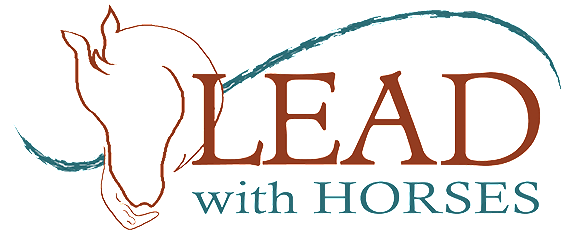The Intersection of PTSD and Pride
We know that June is Pride month. It is also Posttraumatic Stress Disorder Awareness Month. It is important that we care and demonstrate concern for our fellow humans’ struggle in achieving equity and acceptance, as well as healing from wounds inflicted by angry and ignorant others.
In this post we are going to take a closer look at the history of Pride and PTSD Awareness month and how they are interconnected. We’re also going to become more aware of how we can all practice kindness, compassion, and empathy in the company of the Healing Herd that resides at LEAD with Horses.
 Pride:
Pride:
Lesbian, Gay, Bisexual, Transgender, Queer + (LGBTQ+) Pride Month is celebrated annually in June to honor the accomplishments of LGBTQ+ individuals as well as to recognize this community’s struggle for rights, opportunity, and justice.
June is the chosen month for Pride because of the 1969 Stonewall riots, six days of protests that galvanized the gay rights movement. This uprising was a catalyst for the movement to eliminate discriminatory laws and practices against LGBTQ+ Americans. The first Pride march in New York City was held on the one-year anniversary of the Stonewall Uprising.
PTSD Awareness:
In 2010, the U.S. Senate declared June 27 to be National PTSD Awareness Day, and then in 2014, it designated the whole month of June to be observed as National PTSD Awareness Month. Anyone can develop PTSD at any age after experiencing or witnessing a traumatic event.
Often associated with combat veterans, PTSD symptoms were described by Hippocrates in 50 BC. Historically the “unseen” wounds of war have been described as shell shock, soldier’s heart, combat fatigue, or war neurosis. It came to be known as PTSD years after the end of the Vietnam War. Within a few years the diagnosis of PTSD made its first appearance in the Diagnostic and Statistical Manual and interventions to treat the condition began to evolve.
PTSD can be the result of a single event. More often it occurs from an accumulation of ongoing exposure to physical, emotional, or sexual abuse and neglect from early childhood. Complex Trauma, which is the current term, can appear as an absent sense of self, recurring memories or nightmares, hypervigilance, avoidance of reminders of the trauma, distorted sense of self, self-critical beliefs, extraordinary level of shame or guilt, anxiety, and/or difficulty with relationships.
How are Pride and PTSD (Complex Trauma) interrelated?
LGBTQ+ individuals are more likely to experience trauma due to higher rates of victimization and discrimination across the lifespan, including child abuse, sexual, and physical assault. For the BIPOC (black, Indigenous and people of color) community, and gender diverse BIPOC individuals in particular, this is compounded by the discrimination they already face in our society. As a result, LGBTQ+ people are at higher risk of developing PTSD. Up to 48% of lesbian, gay or bisexual individuals and 42% of transgender and gender diverse individuals meet the criteria for PTSD, compared to 4.7% of the general population. Our youth are at great risk. LGBTQ+ youth experience high rates of PTSD and other mental health issues like anxiety, depression, eating disorders, and suicide.
Protective Factors
Everyone needs spaces free of harassment and discrimination. As scary as the statistics and trends are right now, we know that we can make an impact. Positive environments, supportive adults and peers, and increased self-esteem are some of the protective factors that can help youth thrive. LEAD with Horses provides safe space and opportunities for youth to gain skills and confidence. We look to our Healing Herd as an example. Practicing openness can help create a safer, kinder, more accepting world.

